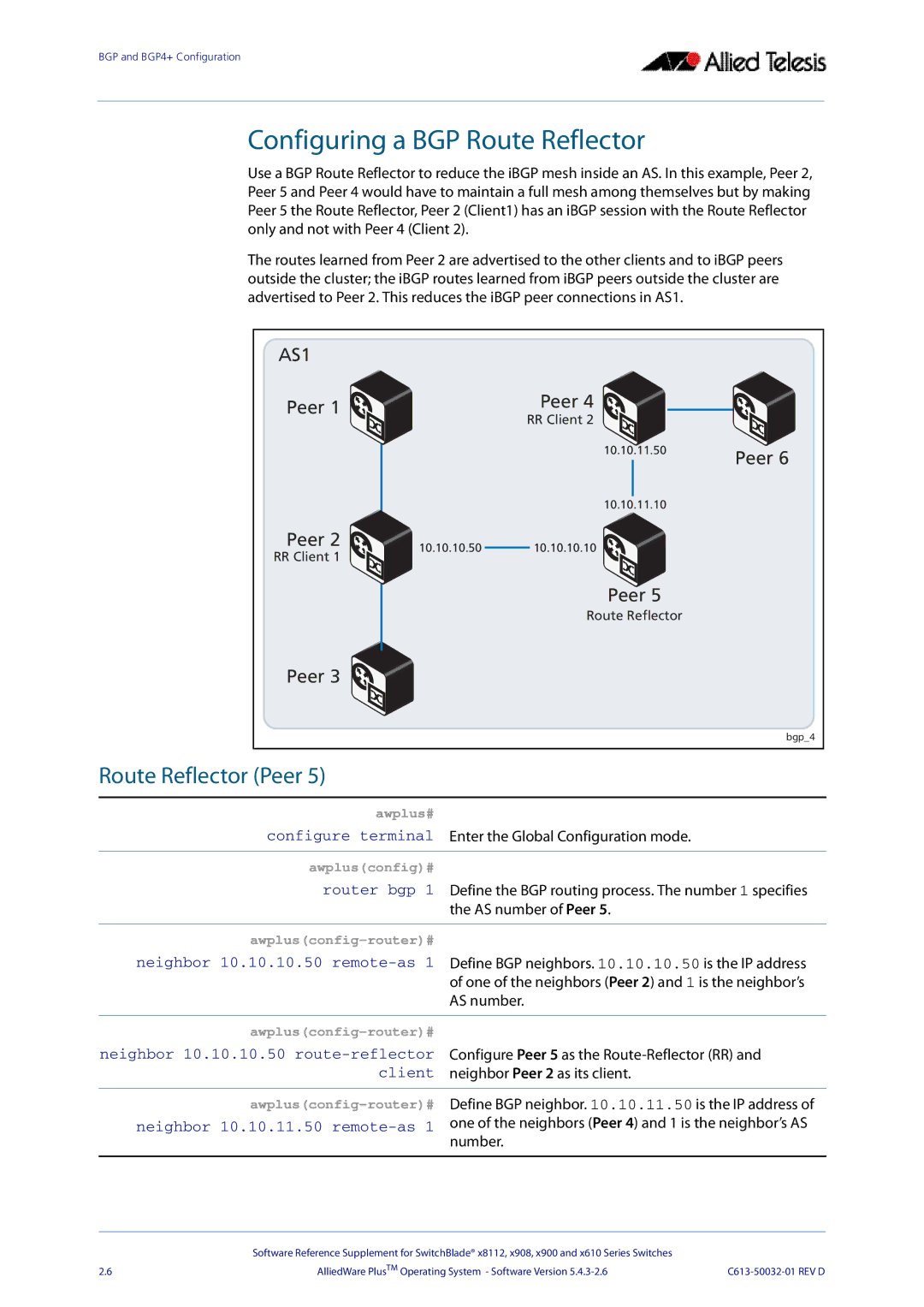
BGP and BGP4+ Configuration
Configuring a BGP Route Reflector
Use a BGP Route Reflector to reduce the iBGP mesh inside an AS. In this example, Peer 2, Peer 5 and Peer 4 would have to maintain a full mesh among themselves but by making Peer 5 the Route Reflector, Peer 2 (Client1) has an iBGP session with the Route Reflector only and not with Peer 4 (Client 2).
The routes learned from Peer 2 are advertised to the other clients and to iBGP peers outside the cluster; the iBGP routes learned from iBGP peers outside the cluster are advertised to Peer 2. This reduces the iBGP peer connections in AS1.
AS1
Peer 1 | Peer 4 | |
RR Client 2 | ||
|
10.10.11.50 | Peer 6 | |
|
| |
|
|
|
10.10.11.10 |
| |
Peer 2 | 10.10.10.50 |
| 10.10.10.10 |
RR Client 1 |
| ||
|
|
|
|
|
| Peer 5 |
|
|
|
| Route Reflector |
|
|
|
|
|
|
| Peer 3 |
|
| |
|
|
| bgp_4 |
|
|
|
|
|
|
Route Reflector (Peer 5) |
|
| ||
|
|
|
| |
| awplus# | Enter the Global Configuration mode. |
| |
| configure terminal |
| ||
|
|
|
| |
| awplus(config)# | Define the BGP routing process. The number 1 specifies |
| |
| router bgp 1 |
| ||
|
|
| the AS number of Peer 5. |
|
|
|
| ||
| Define BGP neighbors. 10.10.10.50 is the IP address |
| ||
neighbor 10.10.10.50 |
| |||
|
|
| of one of the neighbors (Peer 2) and 1 is the neighbor’s |
|
|
|
| AS number. |
|
|
|
| ||
| Configure Peer 5 as the |
| ||
neighbor 10.10.10.50 |
| |||
| client | neighbor Peer 2 as its client. |
| |
|
|
| ||
| Define BGP neighbor. 10.10.11.50 is the IP address of |
| ||
neighbor 10.10.11.50 | one of the neighbors (Peer 4) and 1 is the neighbor’s AS |
| ||
|
|
| number. |
|
|
|
|
|
|
| Software Reference Supplement for SwitchBlade® x8112, x908, x900 and x610 Series Switches |
|
2.6 | AlliedWare PlusTM Operating System - Software Version |
